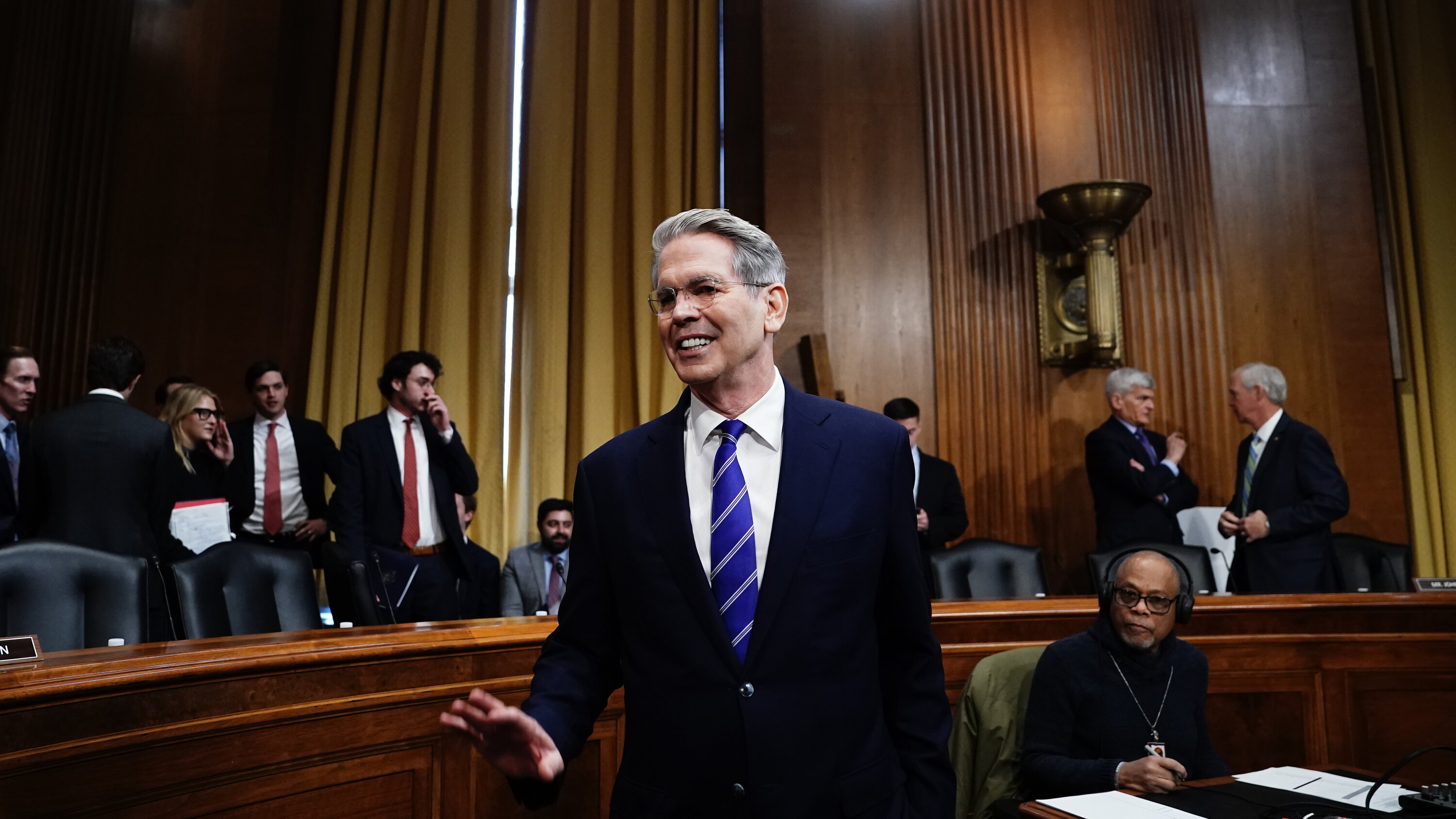Bessent Tells U.S. Firms to Stay Calm as Trump’s Blanket Tariffs Loom
Bessent Tells U.S. Firms to Stay Calm as Trump’s Blanket Tariffs Loom
By
Rachel Steinberg
Last updated:
July 30, 2025
First Published:
August 6, 2025

Photo: The New York Times
Bessent Reassures U.S. Businesses Amid Trump’s Looming Tariff Deadline
With the clock ticking toward President Donald Trump’s August 1 trade deadline, U.S. companies are bracing for a possible 15% to 20% blanket tariff on goods from dozens of countries without finalized trade agreements. But Treasury Secretary Scott Bessent is urging calm, suggesting the impact could be short-lived and manageable—even as anxiety mounts across American industries.
“It’s not the end of the world if these snapback tariffs are on for anywhere from a few days to a few weeks,” Bessent said in an exclusive interview with CNBC in Stockholm. “As long as the countries are negotiating in good faith, there’s room for resolution.”
While Bessent's comments appear intended to reassure, his tone may do little to comfort businesses already navigating unstable supply chains, unpredictable policy shifts, and the threat of overnight price hikes.
What’s at Stake: U.S. Businesses Brace for Higher Import Costs
The proposed tariffs, which Trump first announced during his “Liberation Day” speech in April, are set to hit imports from nations that have failed to secure individual trade deals with the U.S. These blanket tariffs—expected to range between 15% and 20%—could take effect within hours of the August 1 deadline, disrupting import-dependent sectors and squeezing margins for already-stressed small businesses.
According to the U.S. Commerce Department, over 90% of importers in the U.S. are small businesses, many of which are ill-equipped to absorb sharp cost increases or lengthy policy uncertainty.
Some of the products expected to see price hikes if tariffs are implemented include:
- Alcoholic beverages (liqueurs, spirits, beer)
- Baked goods and coffee
- Seafood and specialty imports
While many companies have tried to shield consumers from price hikes by absorbing tariff-related costs internally, that strategy is becoming increasingly unsustainable.
Trump Holds the Line: Deadline Remains Firm
Despite pressure from the business community and foreign governments, White House officials have made it clear that the August 1 deadline is not shifting. On Monday, Trump confirmed he is likely to announce a universal tariff rate for countries without finalized agreements, raising fears of an overnight spike in costs for importers.
At present, the administration has not released a full list of affected countries or products, and dozens of trade negotiations remain unresolved. Without a finalized framework, companies are being forced to plan for worst-case scenarios, unsure of whether exemptions or phased implementations will apply.
The Treasury Department and the White House did not respond to requests for clarification on Bessent’s remarks or the administration’s final tariff rollout plans.
Businesses Call for Clarity as Deadline Nears
Across industries, companies are voicing the need for predictability and transparency. The constant shifts in tariffs, the lack of detailed guidance, and the high-stakes nature of cross-border trade have made it increasingly difficult for firms to forecast costs, manage inventory, or maintain competitive pricing.
Trade analysts note that even short-term tariffs can inflict lasting damage, particularly when they disrupt just-in-time supply chains or cause partners in foreign markets to pivot to other trade partners.
Final Thoughts
While Secretary Bessent’s “not the end of the world” comment may reflect optimism that negotiations will soften the blow of upcoming tariffs, the reality for many U.S. businesses—particularly small importers—is far more precarious.
With Trump’s trade agenda gaining momentum and little indication of policy reversal, American businesses must prepare for a volatile period ahead. Whether these tariffs last “a few days” or far longer, the uncertainty itself is already reshaping how companies plan, price, and operate in the current global trade environment.
Popular articles
Subscribe to unlock premium content
Disney’s Timeless Magic and How the Entertainment Giant Continues to Shape Culture and Innovation

Imran Khan’s Economic Missteps Amid Political Chaos in Pakistan

The Philippines’ Digital Shift How Remittances and BPO Are Fueling Growth

Disney’s Timeless Magic and How the Entertainment Giant Continues to Shape Culture and Innovation

Imran Khan’s Economic Missteps Amid Political Chaos in Pakistan

Disney’s Timeless Magic and How the Entertainment Giant Continues to Shape Culture and Innovation









